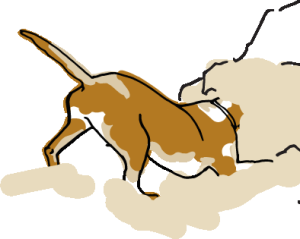 : https://doctoralwriting.wordpress.com/2015/06/29/do-you-wear-latex-or-write-with-it-a-call-for-writing-related-technology-contributions/
: https://doctoralwriting.wordpress.com/2015/06/29/do-you-wear-latex-or-write-with-it-a-call-for-writing-related-technology-contributions/And yes, I do think there are many benefits for doctoral supervision and writing, but in order to embrace and exploit such technologies, we need firstly to know about them and their uses.
We’re planning to finish the year focusing on IT and ICT technologies for researchers and we’d like to hear from doctoral writers and supervisors about their experiences with online technologies: the things that help them get their writing-related activities done - and done better.
Please note: This is not a call for marketers or product-spruikers. We believe the best advice comes from users, so let us have your stories about real experiences of online software programs, apps, communication platforms and so on. We are interested in anything from a quick paragraph up to 1,000 words explaining what works for you and what doesn’t.
Possible areas where technology can positively impact doctoral candidature may include, for example:
The exchange, storage and management of documents
In one of my workplaces a group of us were using a Wiki as a central location for parking our research project. We found it easy to use and easy to access - key characteristics for novices. We had a library for relevant papers, other folders for ethics documents, interview protocols, data and so on. Also, Wiki keeps a history of versions, and sends team members an email alert when documents are added or changed. However, I discovered one drawback: because this was an in-house Wiki, when I left the organisation I no longer had access.
Perhaps you and your supervisor create, share and review doctoral writing on Google Docs or Dropbox - why not tell us how, and what features make these formats better than emailing documents to and fro? How valuable have you found Evernote to help manage information and synchronise across different platforms?
Communicating
Email is fine and it’s hard to imagine it being replaced as an everyday activity, but for quick communication there are more and more options. One university I know has declared Jabber the preferred means of internal communication. It couldn’t be easier to use; but I haven’t noticed a big uptake.
When it comes to technology-mediated meetings and exchange of feedback, do you prefer Skype or Collaborate? As more doctoral supervision and research is undertaken by distance, competence across a variety of communication tools has become essential. Many supervisors have grown used to Skyping meetings, but we’d also like to hear about alternatives.
Maybe you want to tell us why and how you maintain research networks: do you participate in a disciplinary Twitter space, or via a dedicated email list? Maybe you have found Mendeley indispensable for finding, storing and communicating your research? Maybe you blog your research, and if so, what are your experiences? Do you have any advice, tips or tricks you can share?
Productivity
Some students I work with swear by their time management apps: the Flat Tomato and MLO (MyLifeOrganised) appear to be popular. Perhaps you’ve tried the PhD2Published PhDometer and are willing to share your experiences? More extended versions such as RescueTime and Toggl can track the way you spend your time, but I have no idea really how useful they may be … if you can tell us, please do so.
Writing Platforms and tools
Having recently begun working with Engineering students I have been introduced to a whole new world of writing platforms and document preparation. If you are a user of LaTeX, Overleaf or Scrivener you might like to tell us why these are better than Word for the work you do.
Perhaps you have found a writing tool such as Writefullapp or Grammarly that help with grammar or expression and you’d like to tell us how it works for you, and alert us to any limitations.
We’d love to hear from you. Our due date for contributions is: August 30th
So send us up to 1,000 words via our email (doctoralwriting@gmail.com) or use the comments function on this post for a brief comment.
Graphic: Victoria Rolfe ©
No comments:
Post a Comment